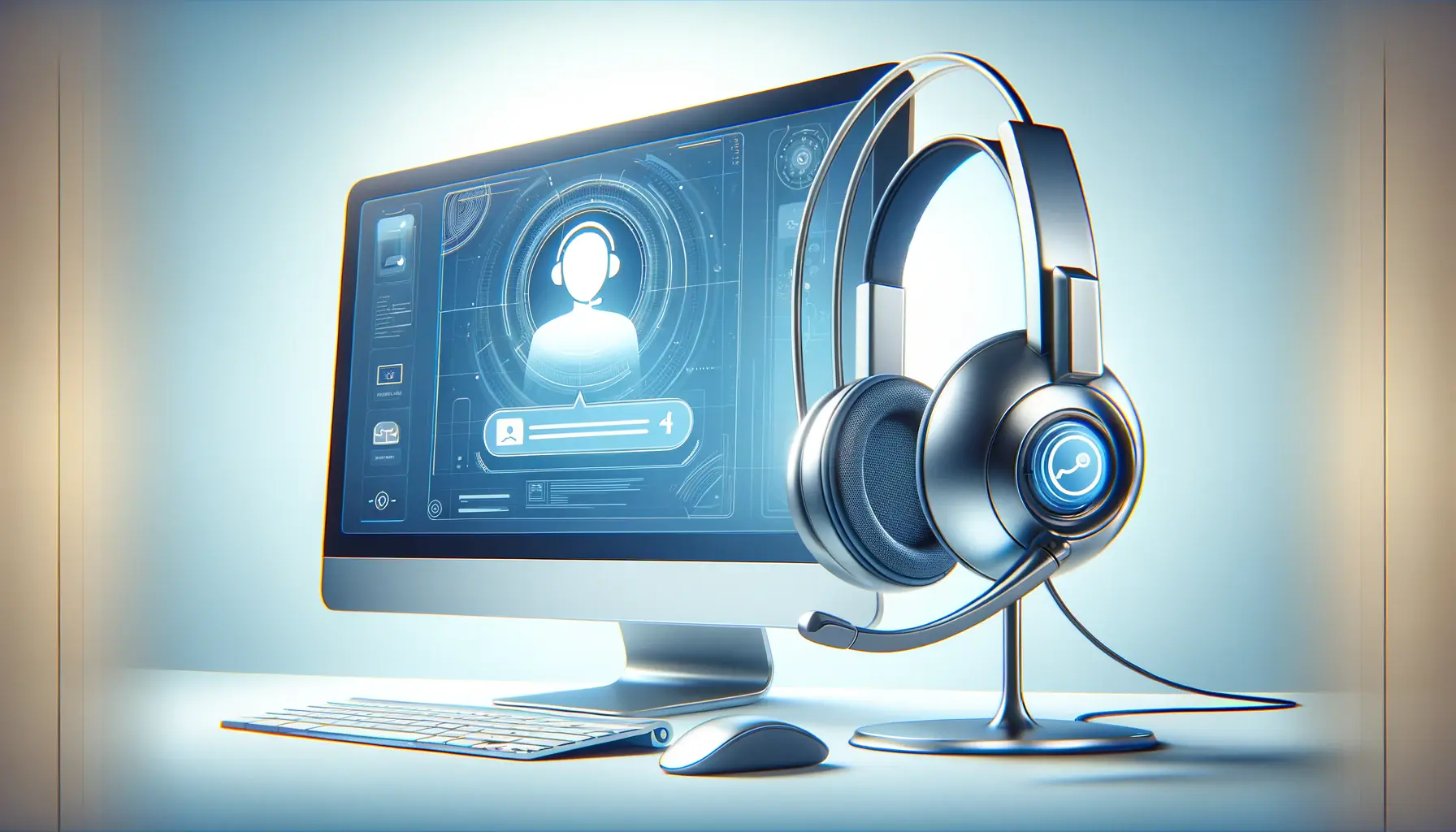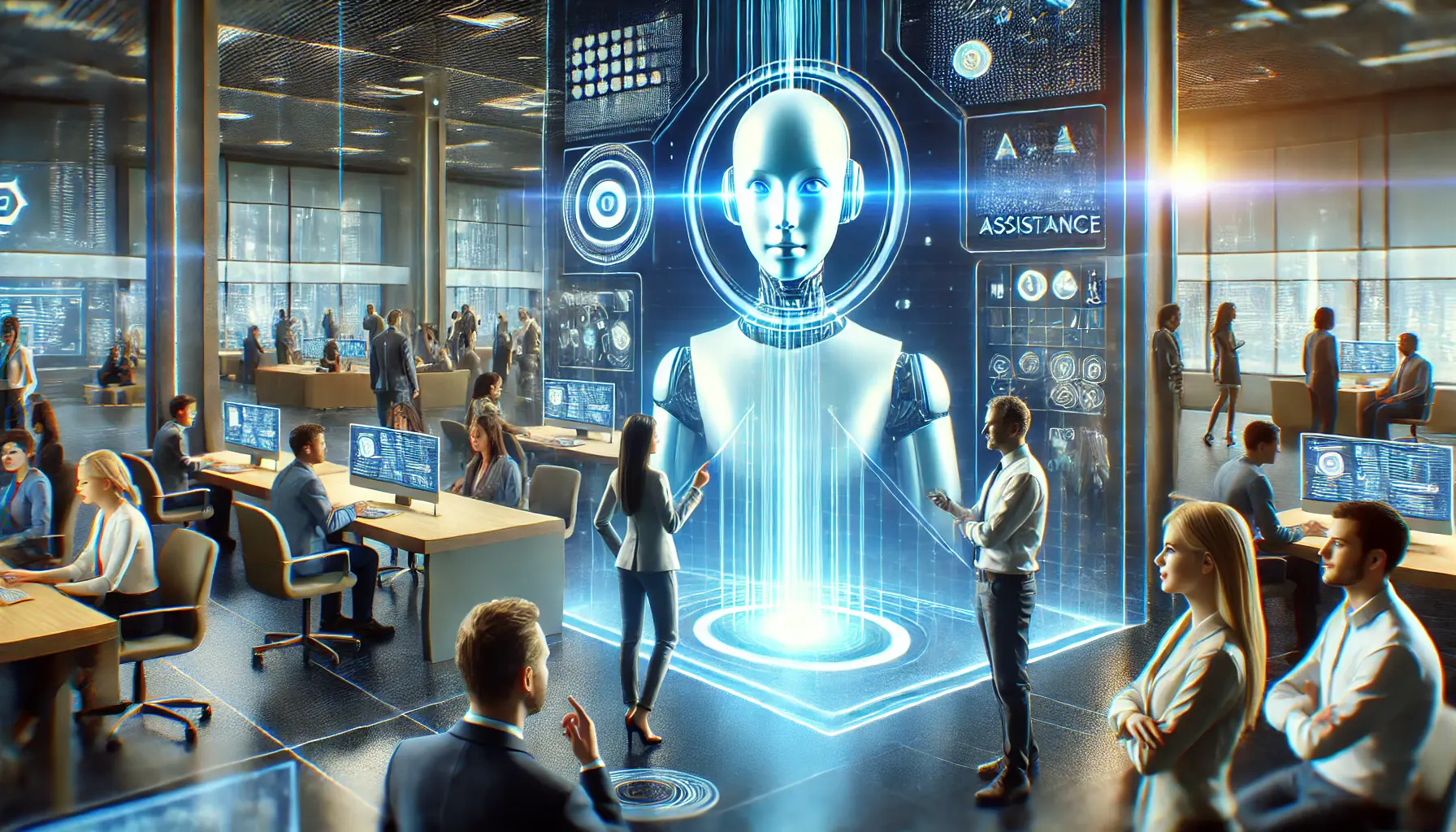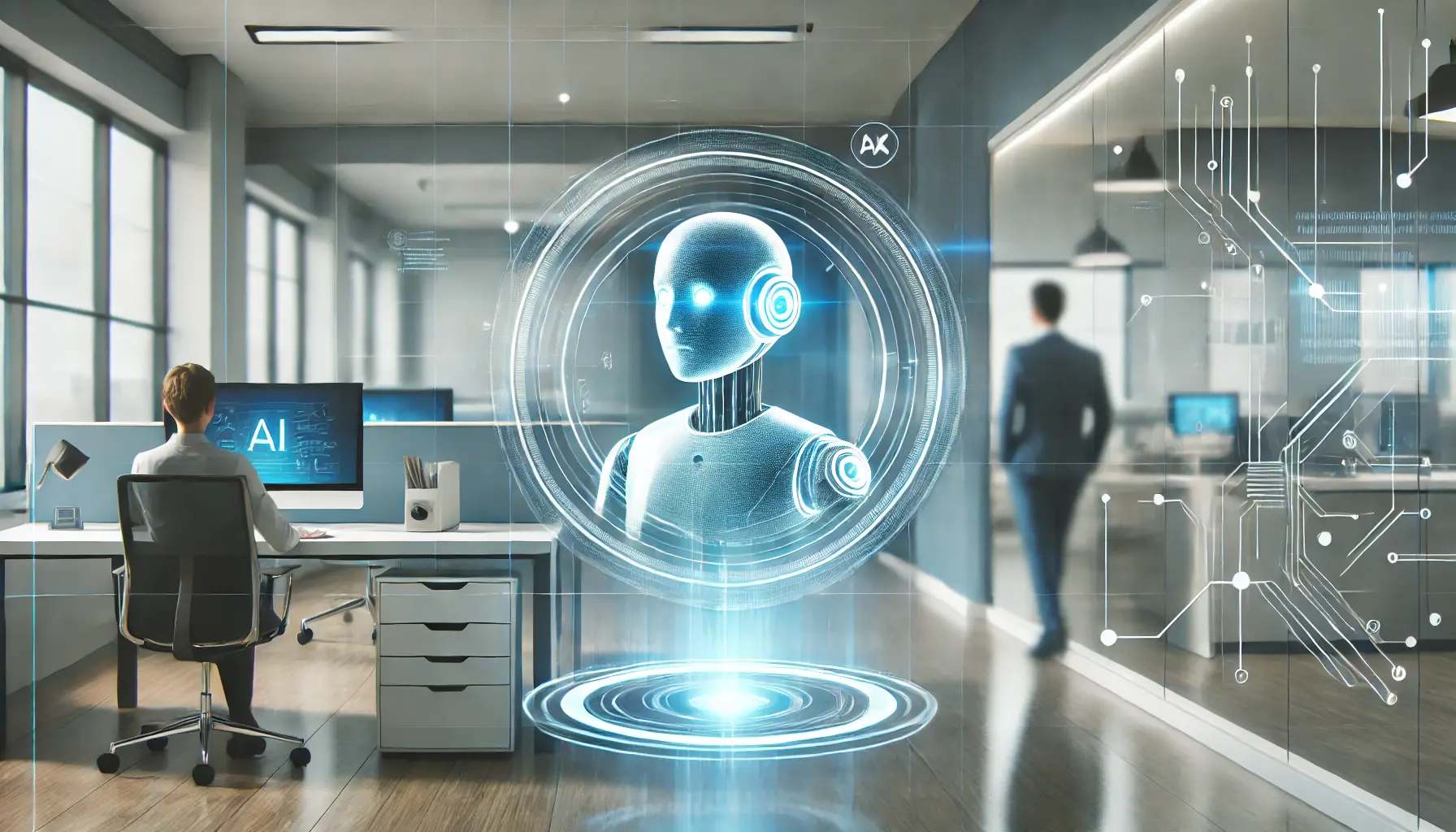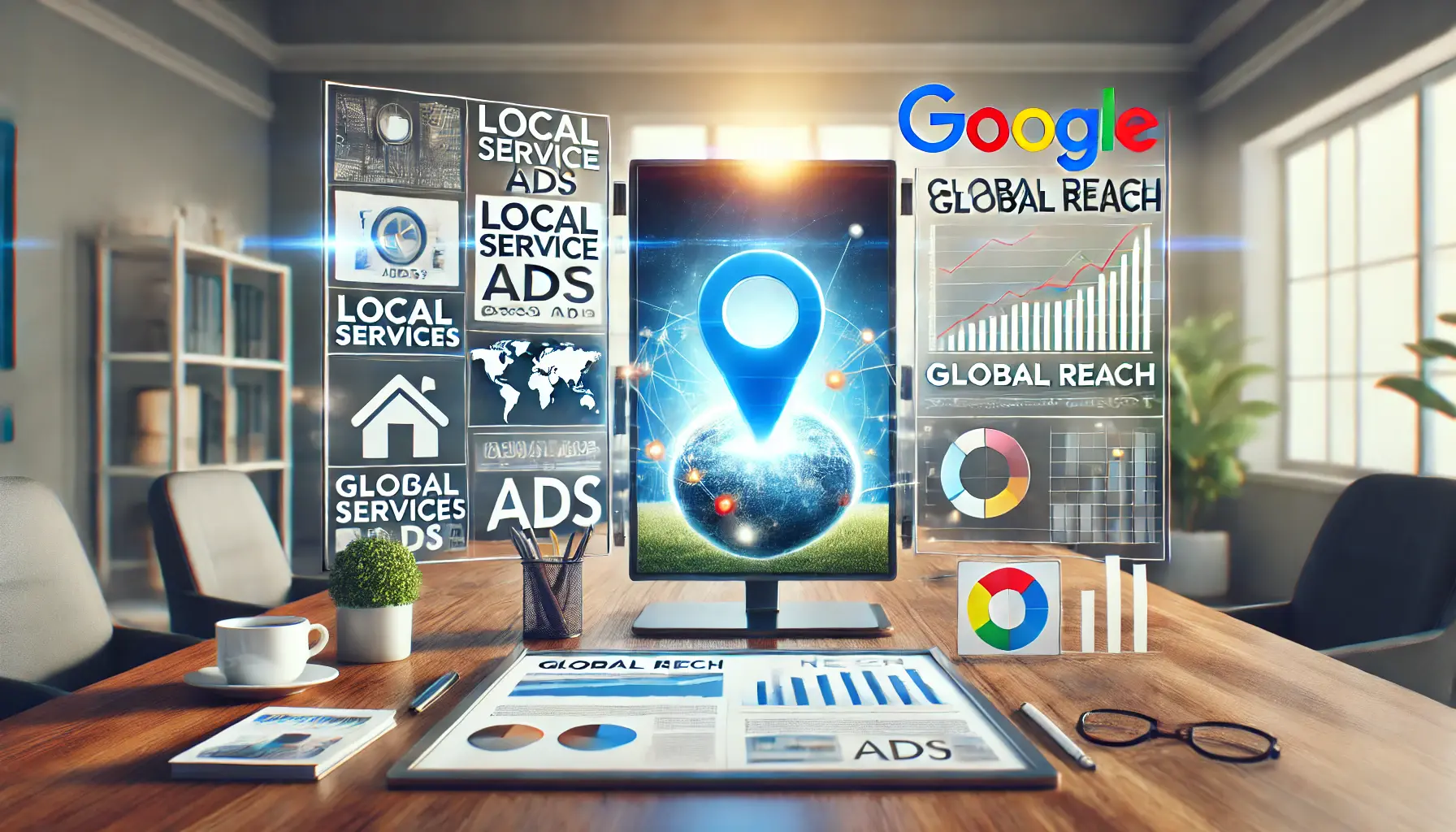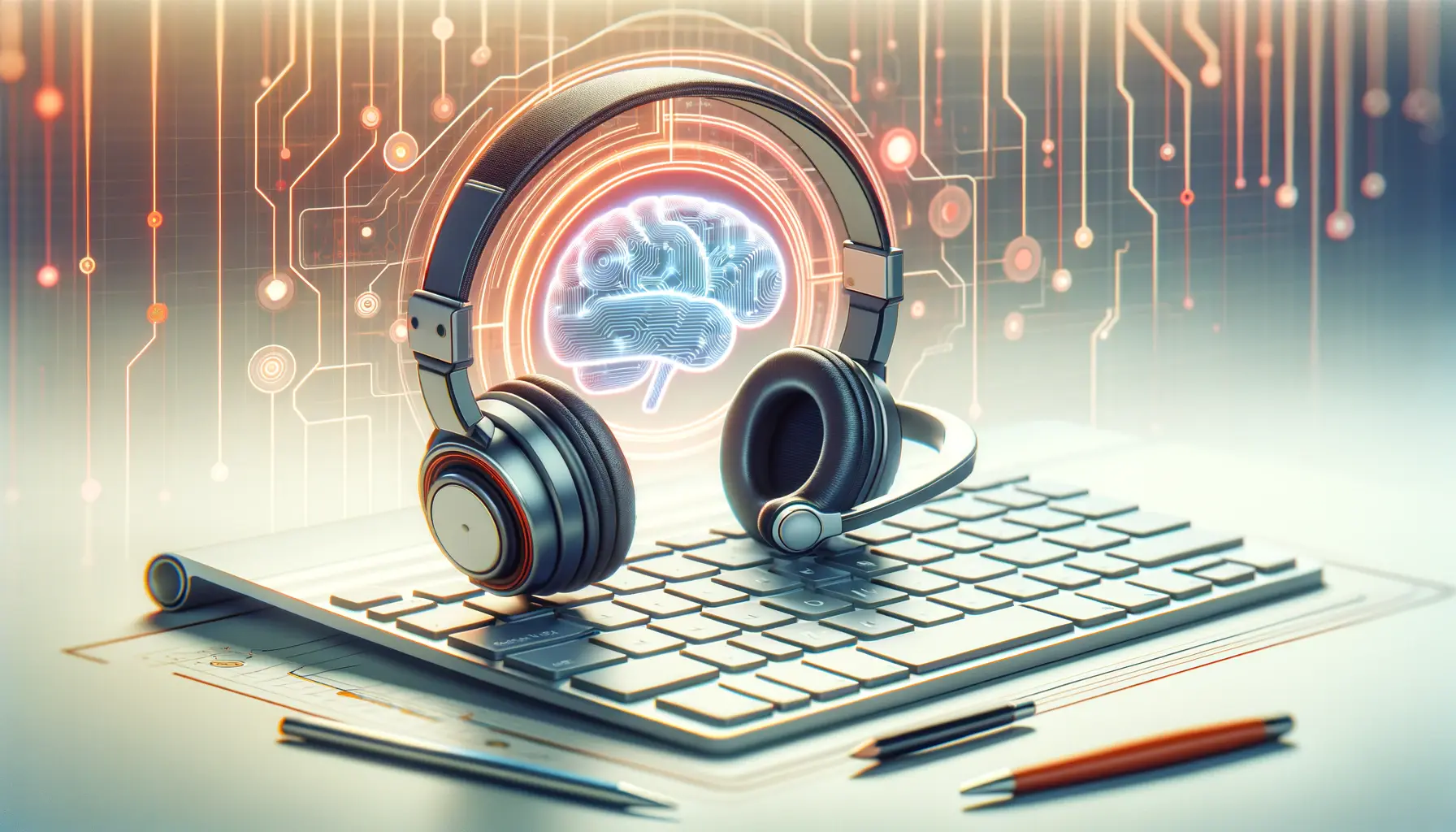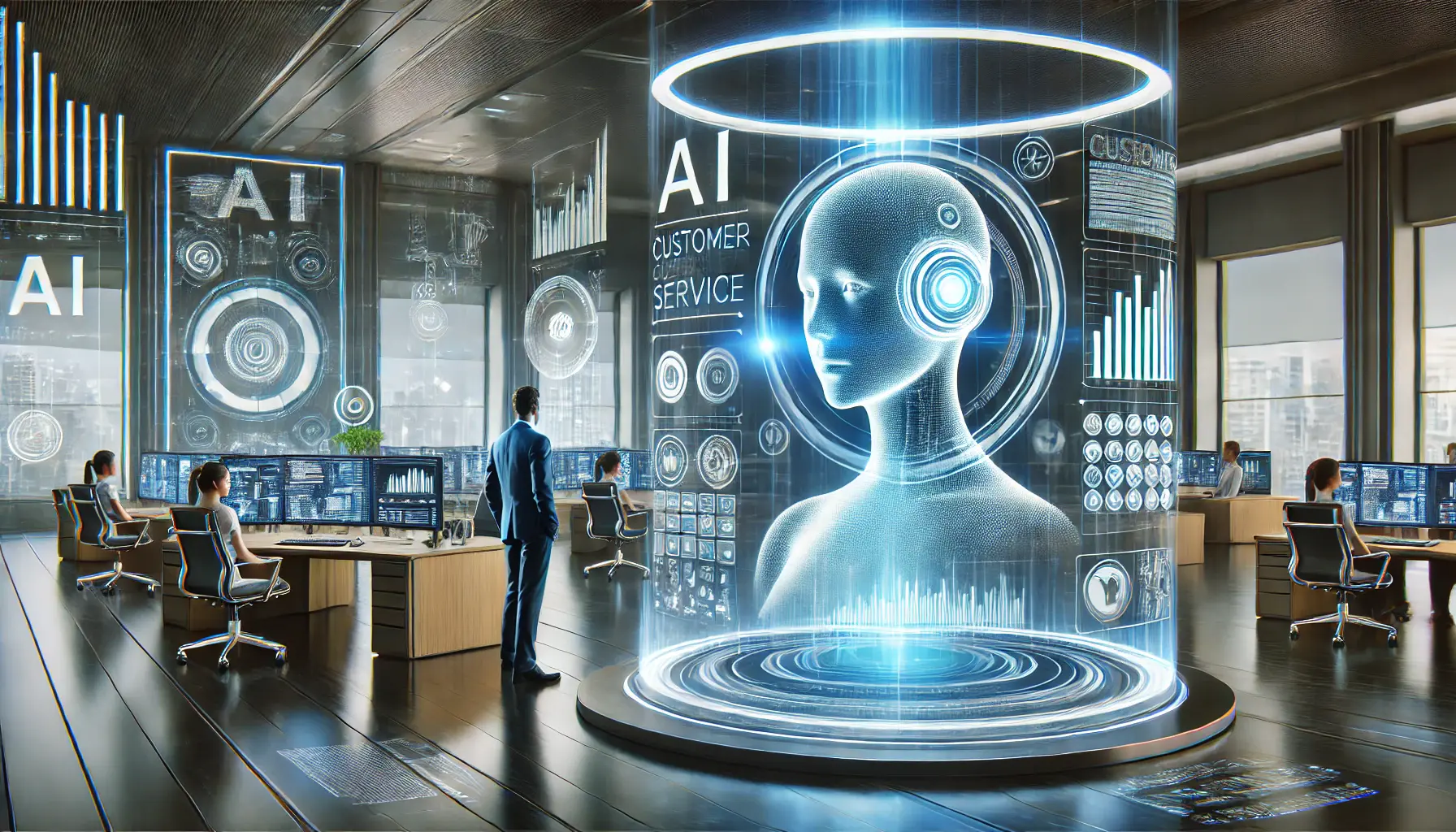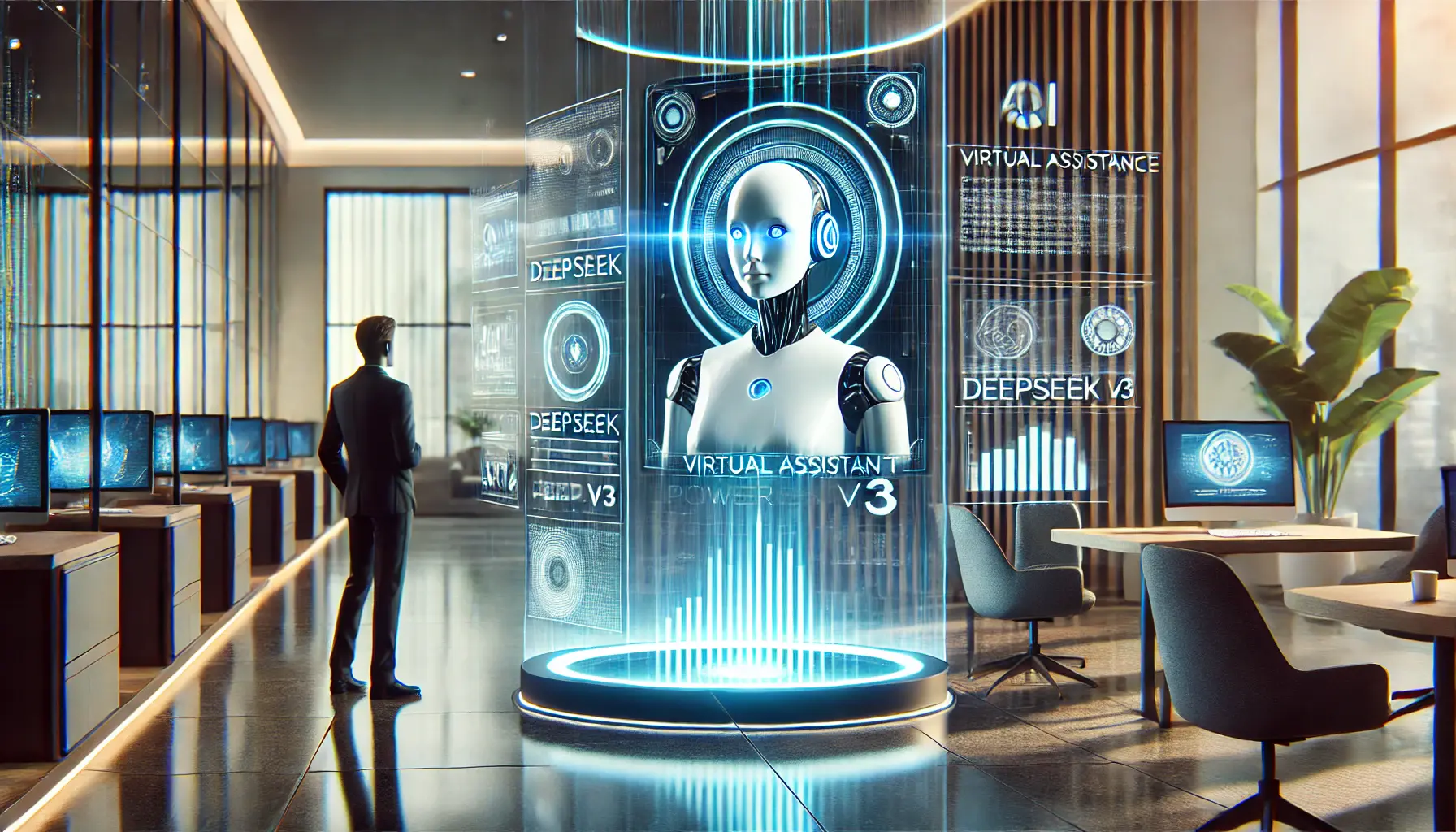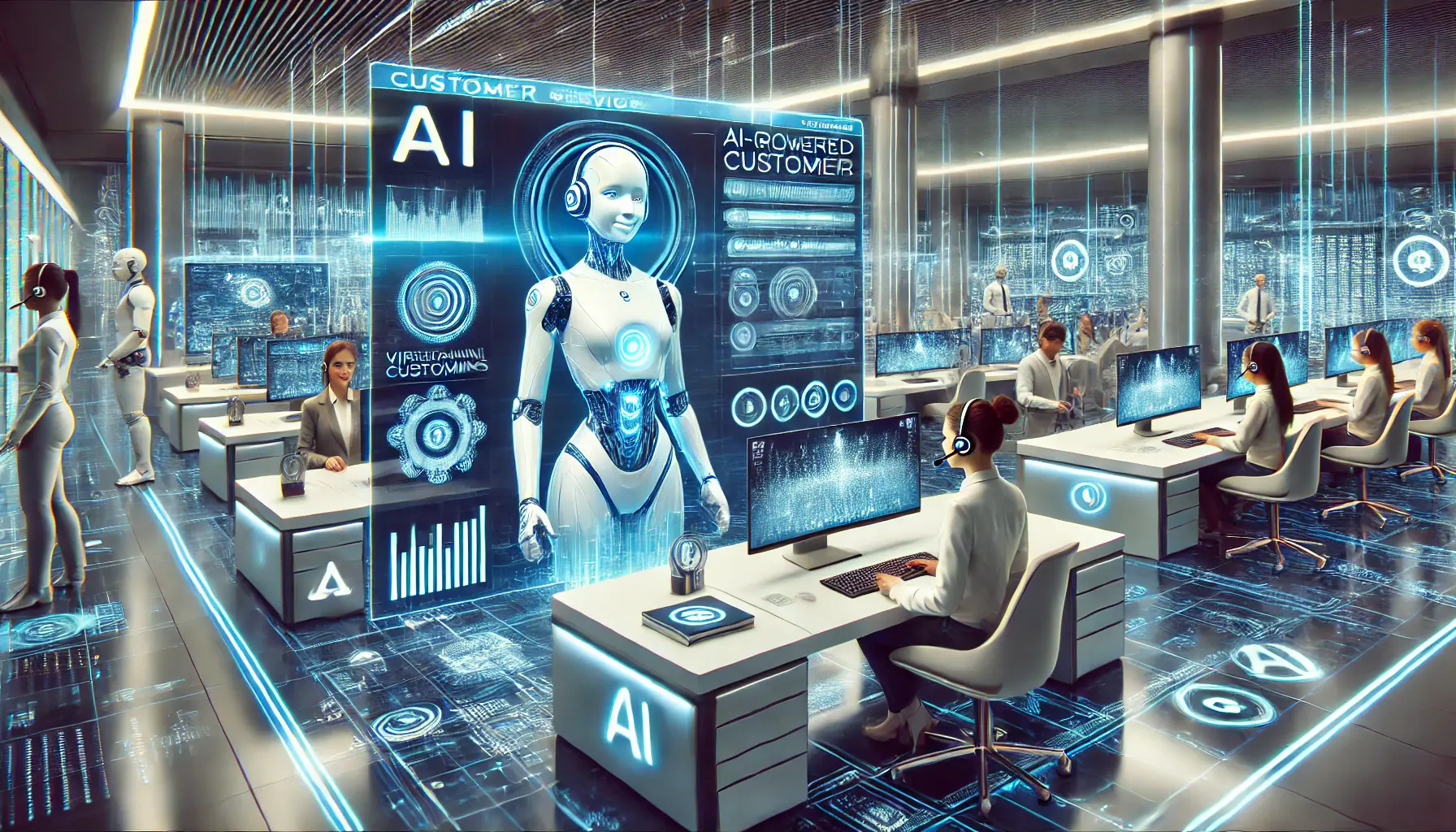In an era where customer expectations are sky-high, businesses are constantly on the lookout for innovative solutions to enhance their customer service.
The advent of artificial intelligence (AI) has opened new avenues for improving customer interactions, with ChatGPT 4 emerging as a pivotal tool in this transformation.
This advanced iteration of the Generative Pre-trained Transformer model, developed by OpenAI, is specifically designed to revolutionize how businesses engage with their customers, offering a blend of efficiency, personalization, and scalability that was previously unattainable.
ChatGPT 4, with its profound understanding of natural language processing (NLP), has the capability to understand and respond to customer queries in a manner that is both human-like and insightful.
This not only enhances the customer experience but also provides businesses with a tool that can operate around the clock, ensuring that customer service is not just limited to business hours.
The integration of ChatGPT 4 into customer service strategies signifies a shift towards more interactive, responsive, and personalized customer service solutions, setting a new standard for excellence in the field.
- Understanding ChatGPT 4’s Role in Customer Service
- Optimizing Customer Interactions with ChatGPT 4
- Challenges and Solutions in Implementing ChatGPT 4
- Real-World Applications of ChatGPT 4 in Customer Service
- Future Trends in AI and Customer Service
- Best Practices for Implementing ChatGPT 4 in Customer Service
- Maximizing Customer Engagement with ChatGPT 4
- Empowering Customer Service with ChatGPT 4: A New Era of Excellence
- ChatGPT 4 Customer Service FAQs
Understanding ChatGPT 4’s Role in Customer Service
The implementation of ChatGPT 4 in customer service is a testament to the rapid advancements in AI technology and its applicability in real-world scenarios.
At its core, ChatGPT 4 is designed to simulate human-like conversations, enabling it to handle a wide range of customer service tasks, from answering FAQs to providing detailed product information and troubleshooting common issues.
This level of versatility makes it an invaluable asset for businesses looking to elevate their customer service.
One of the key strengths of ChatGPT 4 is its ability to learn from interactions, which allows it to continuously improve its responses over time.
This learning capability is crucial for maintaining a high level of customer service, as it ensures that the AI model remains up-to-date with the latest information and can adapt to changing customer needs.
Furthermore, ChatGPT 4’s ability to process and analyze large volumes of data at incredible speeds means that it can provide personalized recommendations and solutions to customers, enhancing the overall service experience.
Benefits of Integrating ChatGPT 4 into Customer Service
The integration of ChatGPT 4 into customer service operations offers numerous benefits, including increased efficiency and reduced response times.
By automating routine inquiries, businesses can free up their human customer service representatives to focus on more complex and sensitive issues, thereby improving the overall efficiency of the customer service department.
Additionally, ChatGPT 4’s 24/7 availability ensures that customers receive immediate assistance at any time of the day, significantly improving customer satisfaction levels.
Another significant advantage of ChatGPT 4 is its scalability.
For businesses experiencing rapid growth or seasonal spikes in customer inquiries, ChatGPT 4 can easily handle the increased volume without the need for additional human resources.
This scalability not only helps businesses maintain a high level of customer service during peak times but also contributes to cost savings by reducing the need for a large customer service team.
ChatGPT 4’s advanced NLP capabilities enable it to understand and respond to a wide range of customer queries, making it a versatile tool for enhancing customer service excellence.
Optimizing Customer Interactions with ChatGPT 4
ChatGPT 4 is not just a tool for automating responses; it’s a sophisticated platform that optimizes customer interactions to provide a seamless and personalized customer service experience.
By leveraging its advanced algorithms, businesses can tailor their customer service strategies to meet the unique needs of each customer, thereby enhancing satisfaction and loyalty.
One of the most significant ways ChatGPT 4 optimizes interactions is through its deep learning capabilities, which enable it to understand context, sentiment, and the nuances of human language.
This allows ChatGPT 4 to engage in more meaningful and effective conversations with customers, addressing their concerns with a level of understanding and empathy that was previously exclusive to human agents.
Personalization and Predictive Customer Service
- Individualized Responses: ChatGPT 4 can analyze a customer’s previous interactions and preferences to tailor responses and recommendations. This personalized approach not only improves the customer experience but also increases the chances of upselling and cross-selling.
- Predictive Support: By identifying patterns in customer behavior, ChatGPT 4 can anticipate needs and offer solutions before the customer even realizes they have a problem. This proactive approach to customer service can significantly enhance customer satisfaction and loyalty.
Efficiency and Resolution Speed
- Quick Resolution of Queries: ChatGPT 4’s ability to access and process vast amounts of information instantly means it can provide quick answers to customer queries, reducing wait times and improving the overall service experience.
- Handling Multiple Queries Simultaneously: Unlike human agents who can only handle one customer at a time, ChatGPT 4 can engage with multiple customers simultaneously, ensuring that no customer has to wait too long for a response.
Incorporating ChatGPT 4 into customer service operations not only enhances efficiency and personalization but also sets a new benchmark for predictive and proactive customer support.
The ability of ChatGPT 4 to provide personalized and predictive customer service transforms the traditional customer service model.
By understanding and anticipating customer needs, businesses can deliver a more engaging, efficient, and satisfying service experience.
This optimization of customer interactions is a key factor in building stronger relationships with customers, ultimately leading to increased loyalty and trust.
Challenges and Solutions in Implementing ChatGPT 4
While ChatGPT 4 offers numerous advantages for customer service, its implementation comes with its own set of challenges.
These challenges range from technical integration issues to concerns about the quality of AI-generated responses.
However, with careful planning and execution, businesses can overcome these hurdles and fully leverage ChatGPT 4’s capabilities to enhance their customer service operations.
Understanding these challenges is the first step towards a successful implementation.
It allows businesses to prepare adequately, ensuring that the integration of ChatGPT 4 into their customer service strategy is smooth and effective.
Integration and Compatibility Issues
- Technical Integration: Integrating ChatGPT 4 with existing customer service platforms and CRM systems can be complex. It requires a deep understanding of both the AI technology and the existing IT infrastructure.
- Solution: Businesses can address this challenge by working with experienced IT professionals and leveraging OpenAI’s support resources. A phased integration approach, starting with pilot projects, can also help in identifying and resolving potential issues early in the process.
Maintaining the Quality of AI Responses
- Ensuring Relevance and Accuracy: One of the main concerns with AI-based customer service is ensuring that the responses provided by ChatGPT 4 are relevant, accurate, and contextually appropriate.
- Solution: Regular monitoring and updating of the AI model are essential. Incorporating feedback mechanisms where customers can rate their satisfaction with the responses received can help in continuously improving the quality of AI-generated answers.
Training and Adaptation
- Staff Training: Employees need to be trained not only on how to use ChatGPT 4 but also on how to work alongside it, leveraging its capabilities to enhance their own performance.
- Solution: Implementing comprehensive training programs that cover both the technical aspects of ChatGPT 4 and the best practices for integrating AI into customer service workflows can mitigate this challenge.
Effective implementation of ChatGPT 4 requires addressing technical, quality, and training challenges, ensuring a seamless integration into customer service operations.
Overcoming the challenges associated with implementing ChatGPT 4 in customer service is crucial for businesses aiming to capitalize on the benefits of AI.
By addressing these issues proactively, companies can ensure that their customer service operations are not only more efficient and effective but also more responsive to the evolving needs of their customers.
Real-World Applications of ChatGPT 4 in Customer Service
The potential of ChatGPT 4 in transforming customer service is not just theoretical.
Numerous businesses across various industries have already started to harness its capabilities, witnessing significant improvements in customer satisfaction, operational efficiency, and overall service quality.
These real-world applications of ChatGPT 4 illustrate its versatility and effectiveness in addressing a wide range of customer service challenges.
By examining these applications, businesses can gain insights into how ChatGPT 4 can be tailored to meet their specific needs, thereby maximizing the benefits of this advanced AI technology.
Automated Customer Support
- Case Study: A leading e-commerce platform implemented ChatGPT 4 to handle customer inquiries related to order tracking, returns, and product information. This move significantly reduced response times and increased customer satisfaction scores.
- Impact: The platform reported a 40% reduction in the workload of human customer service agents, allowing them to focus on more complex queries and improving the overall efficiency of the customer service department.
Personalized Shopping Experiences
- Case Study: A fashion retailer integrated ChatGPT 4 into its online store to offer personalized shopping advice. Customers could interact with the AI to receive recommendations based on their style preferences and past purchases.
- Impact: The retailer saw a 25% increase in average order value and a significant improvement in customer engagement and loyalty.
Enhancing Customer Feedback and Insights
- Case Study: A service provider used ChatGPT 4 to automate the collection and analysis of customer feedback. This enabled the company to quickly identify areas for improvement and respond to customer needs more effectively.
- Impact: The company experienced a noticeable improvement in service quality and customer satisfaction, with a 30% increase in positive feedback within the first three months of implementation.
The successful implementation of ChatGPT 4 in various sectors demonstrates its potential to revolutionize customer service, offering insights into its adaptability and impact on business operations.
These examples of ChatGPT 4 in action highlight the technology’s ability to enhance customer service across different touchpoints.
From automating routine inquiries to providing personalized shopping experiences and gathering valuable customer insights, ChatGPT 4 proves to be a versatile and effective tool for businesses aiming to improve their customer service operations.
Future Trends in AI and Customer Service
The integration of AI technologies like ChatGPT 4 into customer service is just the beginning.
As we look to the future, several trends are emerging that promise to further transform the landscape of customer service, making it more personalized, efficient, and proactive.
Understanding these trends is crucial for businesses aiming to stay ahead in the competitive market and provide exceptional customer experiences.
These future trends not only highlight the potential for further advancements in AI but also underscore the importance of adopting a forward-thinking approach to customer service.
Enhanced Personalization Through AI
- Trend: AI technologies will become even more sophisticated in understanding customer preferences and behavior, enabling businesses to offer unprecedented levels of personalization in their services.
- Impact: This will lead to more engaging and satisfying customer experiences, as services and communications are tailored to individual customer needs and expectations.
Proactive Customer Service
- Trend: AI will enable businesses to anticipate customer needs and address issues before they arise, transforming customer service from a reactive to a proactive model.
- Impact: This shift will significantly enhance customer satisfaction and loyalty, as customers feel valued and understood by the businesses they interact with.
Seamless Omnichannel Experiences
- Trend: AI will play a key role in unifying customer service across multiple channels, ensuring a seamless and consistent experience whether customers are interacting online, in-app, or in-person.
- Impact: This will eliminate friction points in the customer journey, leading to smoother interactions and a more cohesive brand experience.
Empowering Customer Service Agents with AI
- Trend: AI will not replace human customer service agents but will empower them with tools and insights to enhance their effectiveness and efficiency.
- Impact: This partnership between AI and human agents will elevate the quality of customer service, combining the best of both worlds: the efficiency and scalability of AI with the empathy and understanding of human interaction.
The future of customer service lies in the strategic integration of AI technologies like ChatGPT 4, enhancing personalization, efficiency, and the overall customer experience.
As these trends continue to evolve, businesses that embrace AI and integrate it thoughtfully into their customer service strategies will not only improve their service offerings but also build stronger, more meaningful relationships with their customers.
The future of customer service is bright, with AI technologies paving the way for innovative and customer-centric service models.
Best Practices for Implementing ChatGPT 4 in Customer Service
Implementing ChatGPT 4 into customer service operations requires careful planning and execution to ensure its success.
By adhering to best practices, businesses can maximize the benefits of this AI technology, enhancing their customer service capabilities and ensuring a positive impact on their overall customer experience.
These best practices are essential for any organization looking to leverage ChatGPT 4 effectively.
Following these guidelines can help businesses navigate the complexities of AI integration, ensuring that ChatGPT 4 serves as a valuable asset in their customer service strategy.
Start with Clear Objectives
- Define Goals: Clearly define what you aim to achieve with ChatGPT 4 in your customer service operations. Whether it’s reducing response times, handling a higher volume of queries, or improving customer satisfaction, having clear objectives is crucial.
- Measure Success: Establish metrics to measure the success of ChatGPT 4 in achieving these goals. This could include customer satisfaction scores, resolution times, or the volume of queries handled.
Ensure Quality Training Data
- Data Quality: The effectiveness of ChatGPT 4 is heavily dependent on the quality of the training data it receives. Ensure that the data used to train the AI model is relevant, comprehensive, and free from biases.
- Continuous Learning: Regularly update the training data to reflect new products, services, or changes in customer service policies. This ensures that ChatGPT 4 remains effective and relevant over time.
Focus on Customer Privacy and Security
- Privacy Measures: Implement strict privacy measures to protect customer data. Ensure that ChatGPT 4 complies with all relevant data protection regulations and that customers are informed about how their data is used.
- Security Protocols: Establish robust security protocols to safeguard against data breaches. Regularly review and update these protocols to address new security threats.
Integrate Human Oversight
- Human-AI Collaboration: While ChatGPT 4 can handle many aspects of customer service, human oversight is essential to manage complex queries and provide a personal touch when needed.
- Training for Staff: Train your staff to work effectively with ChatGPT 4, ensuring they understand how to leverage its capabilities to enhance their own performance and provide better service to customers.
Adopting these best practices is crucial for businesses aiming to implement ChatGPT 4 in their customer service operations successfully, ensuring a seamless integration and maximization of its benefits.
By following these best practices, businesses can ensure a smooth and effective integration of ChatGPT 4 into their customer service operations, leveraging its capabilities to enhance service quality, efficiency, and customer satisfaction.
The key to success lies in a thoughtful approach that balances the strengths of AI with the irreplaceable value of human interaction.
Maximizing Customer Engagement with ChatGPT 4
Maximizing customer engagement is a critical goal for any business, and ChatGPT 4 offers powerful tools to achieve this.
By leveraging the capabilities of this advanced AI, companies can create more meaningful interactions, provide instant support, and build stronger relationships with their customers.
The key to success lies in understanding how to effectively utilize ChatGPT 4 to enhance engagement strategies.
Implementing ChatGPT 4 with a focus on customer engagement not only improves the quality of service but also drives business growth by increasing customer loyalty and satisfaction.
Creating Interactive and Dynamic Conversations
- Engagement Through Personalization: Use ChatGPT 4 to deliver personalized experiences by understanding and responding to individual customer preferences and behaviors. This level of personalization makes interactions more engaging and relevant.
- Dynamic Responses: Enable ChatGPT 4 to generate dynamic responses that adapt to the context of the conversation, making each interaction feel unique and tailored to the customer’s specific needs.
Providing Instant Support and Resolution
- 24/7 Availability: With ChatGPT 4, businesses can offer round-the-clock support, ensuring that customers receive immediate assistance whenever they need it, thereby significantly enhancing satisfaction and trust.
- Efficient Problem Solving: ChatGPT 4 can quickly identify and resolve common issues, providing fast and accurate solutions to customer queries, which is essential for maintaining high levels of engagement.
Leveraging ChatGPT 4 for Feedback and Improvement
- Collecting Customer Feedback: Utilize ChatGPT 4 to automate the collection of customer feedback, making it easier for businesses to gather insights into customer satisfaction and areas for improvement.
- Continuous Improvement: Analyze the feedback collected through ChatGPT 4 to make informed decisions about how to enhance products, services, and customer service strategies, fostering a culture of continuous improvement.
Enhancing Customer Education and Onboarding
- Educational Interactions: ChatGPT 4 can be used to educate customers about products and services, providing them with the information they need to make informed decisions and enhancing their overall experience.
- Streamlined Onboarding: For new customers, ChatGPT 4 can simplify the onboarding process, guiding them through the steps necessary to get started with a product or service, thereby improving engagement from the outset.
By maximizing customer engagement through personalized interactions, instant support, feedback collection, and educational content, ChatGPT 4 can significantly contribute to building lasting customer relationships and driving business success.
ChatGPT 4’s role in customer service extends beyond mere query resolution; it plays a pivotal part in enhancing customer engagement and loyalty.
Through strategic implementation and utilization of its capabilities, businesses can ensure that every customer interaction is an opportunity to reinforce their commitment to excellence in service and support.
Empowering Customer Service with ChatGPT 4: A New Era of Excellence
The journey through the capabilities, challenges, applications, and future trends of ChatGPT 4 in customer service paints a vivid picture of its transformative potential.
As businesses strive to meet and exceed the evolving expectations of their customers, ChatGPT 4 emerges as a cornerstone technology that promises to redefine the standards of customer service excellence.
This conclusion aims to encapsulate the essence of ChatGPT 4’s impact on customer service, offering a forward-looking perspective on its role in shaping the future of customer interactions.
Revolutionizing Customer Interactions
ChatGPT 4 has demonstrated its ability to revolutionize customer service by providing personalized, efficient, and scalable solutions.
The technology’s advanced natural language processing capabilities enable it to understand and respond to customer queries with an unprecedented level of accuracy and relevance.
This not only enhances the customer experience but also allows businesses to optimize their resources, directing human customer service representatives to tasks that require a personal touch.
Overcoming Implementation Challenges
The implementation of ChatGPT 4, while promising, is not without its challenges.
Technical integration, maintaining the quality of AI responses, and ensuring privacy and security are significant hurdles that businesses must overcome.
However, the solutions to these challenges are within reach, involving strategic planning, continuous training, and adherence to best practices in AI deployment.
By addressing these issues proactively, businesses can unlock the full potential of ChatGPT 4 in enhancing their customer service operations.
Looking Ahead: The Future of AI in Customer Service
- The trend towards more personalized and proactive customer service, powered by AI, is set to continue. ChatGPT 4 will play a pivotal role in enabling businesses to anticipate customer needs and offer solutions before they even arise.
- Integration of ChatGPT 4 across multiple channels will ensure a seamless and consistent customer experience, regardless of how or where a customer chooses to interact with a business.
- The collaboration between human customer service agents and ChatGPT 4 will enhance the overall quality of customer service, combining the efficiency and scalability of AI with the empathy and understanding of human interaction.
In conclusion, ChatGPT 4 is not just a tool for automating customer service tasks; it is a dynamic and intelligent partner that can drive customer service excellence.
Its ability to learn, adapt, and provide personalized interactions makes it an invaluable asset for any business looking to elevate its customer service.
As we move forward, the integration of ChatGPT 4 into customer service strategies will undoubtedly become more prevalent, setting a new benchmark for what is possible in customer engagement and support.
The future of customer service is bright, with ChatGPT 4 leading the way towards more innovative, efficient, and customer-centric solutions.
ChatGPT 4 Customer Service FAQs
Explore the most common inquiries about leveraging ChatGPT 4 for enhancing customer service experiences.
ChatGPT 4 provides personalized responses, 24/7 support, and can handle a vast array of customer queries with high accuracy and efficiency.
ChatGPT 4 adheres to strict data protection protocols, ensuring all customer interactions are secure and private, complying with relevant regulations.
Yes, ChatGPT 4 can manage complex inquiries by understanding context, analyzing data, and providing accurate, contextually relevant responses.
ChatGPT 4 supports multiple languages, making it an ideal solution for global businesses seeking to provide multilingual customer support.
Businesses can integrate ChatGPT 4 through APIs, ensuring seamless compatibility with existing customer service platforms and CRM systems.
Staff training focuses on navigating the ChatGPT 4 interface, utilizing its features effectively, and integrating AI assistance into customer interactions.
By providing quick, accurate, and personalized responses, ChatGPT 4 significantly enhances the customer experience, leading to higher satisfaction levels.
Yes, ChatGPT 4 automates routine inquiries, allowing customer service teams to focus on more complex and sensitive customer needs.
